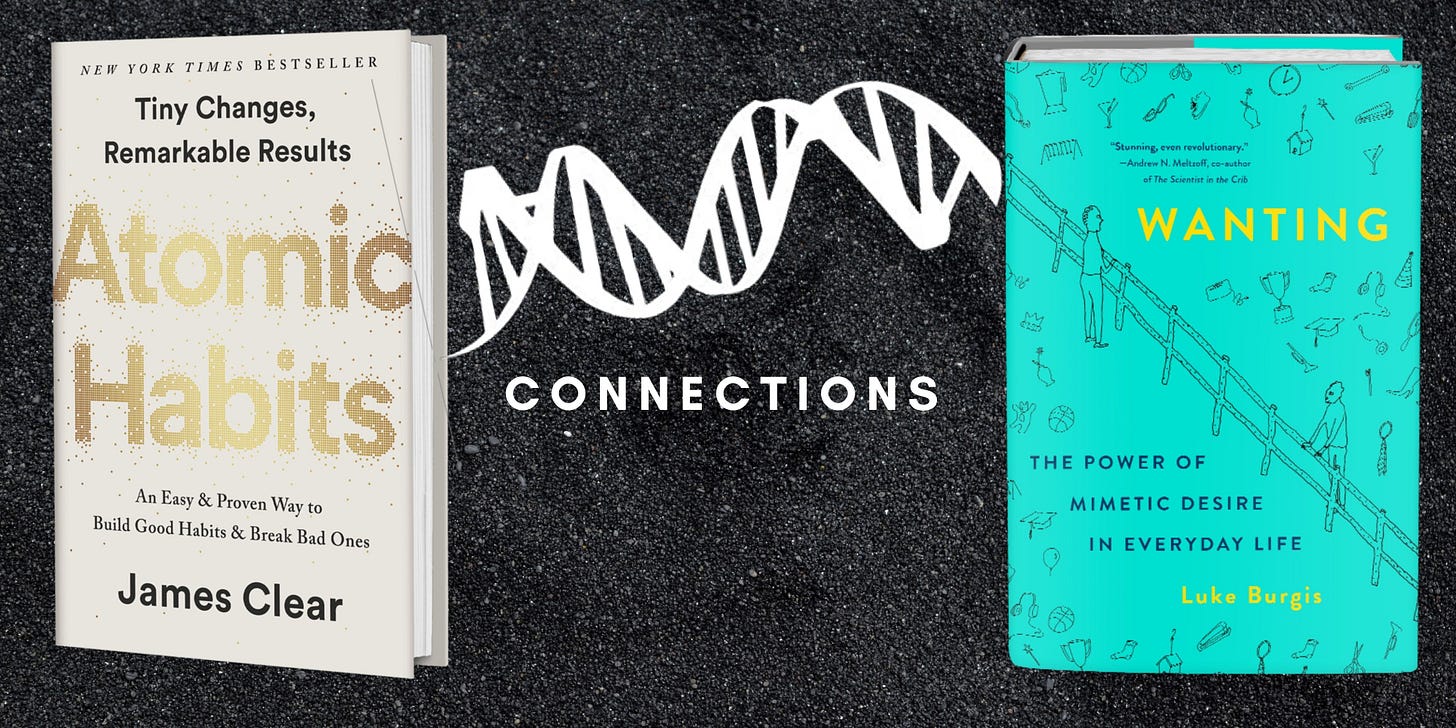Books are always in conversation with other books. In the case of James Clear and I, I’m grateful that this conversation has extended beyond the books to a personal chat. Below I’ll explain one of the many important connections I seen between his book, Atomic Habits, and my book, Wanting. James weighs in with a few words of his own in response to a few questions from me. I hope you enjoy.
Substack is the home for great culture




